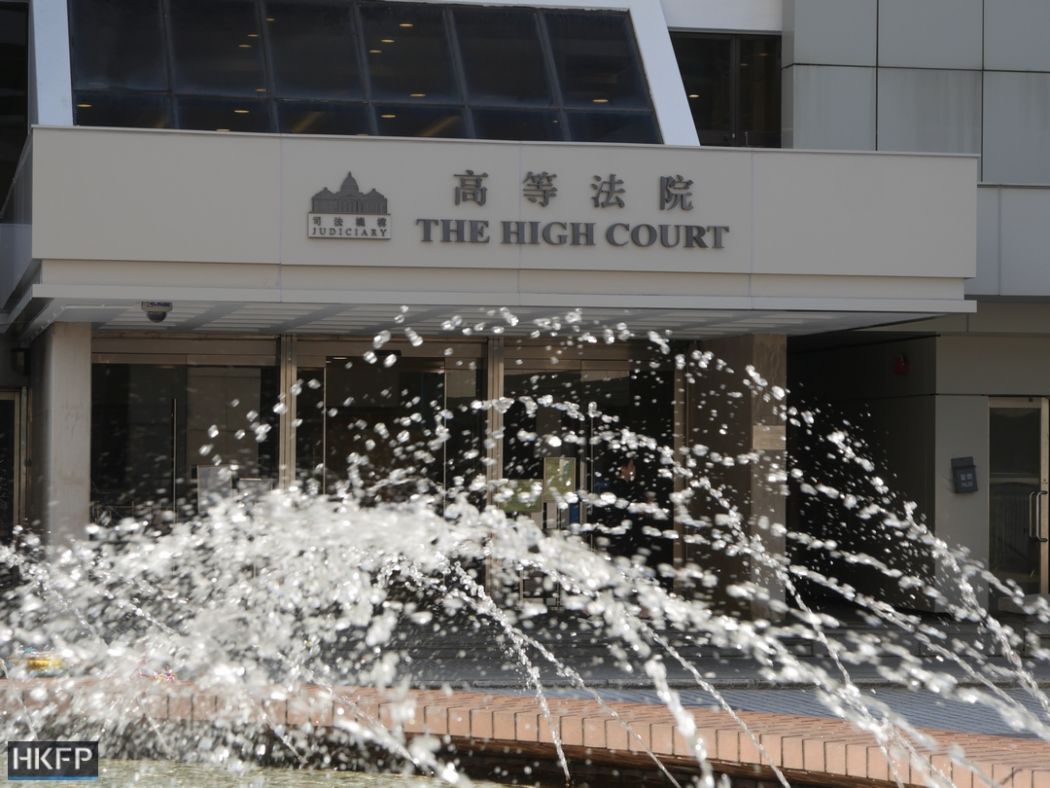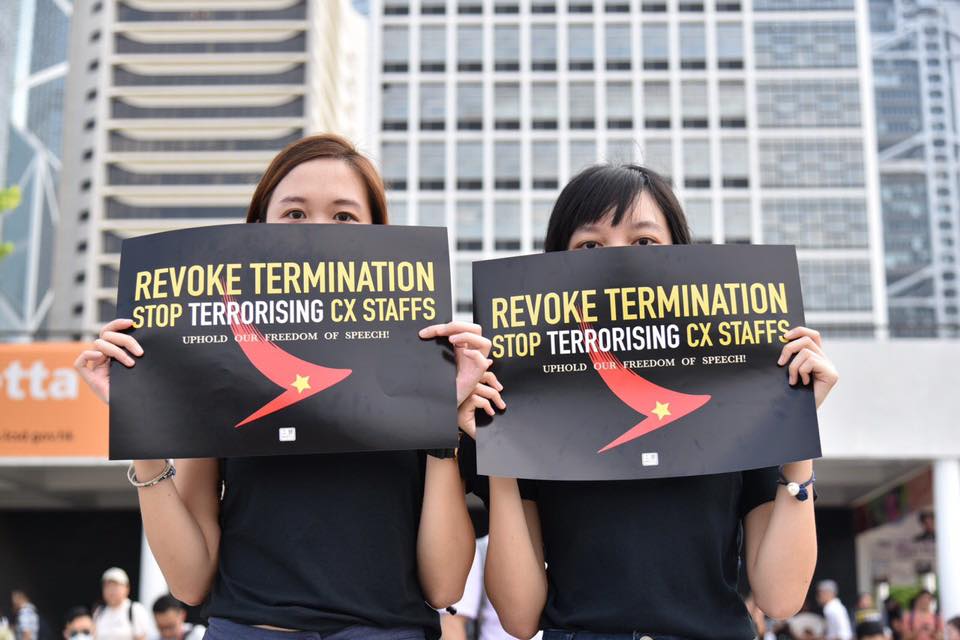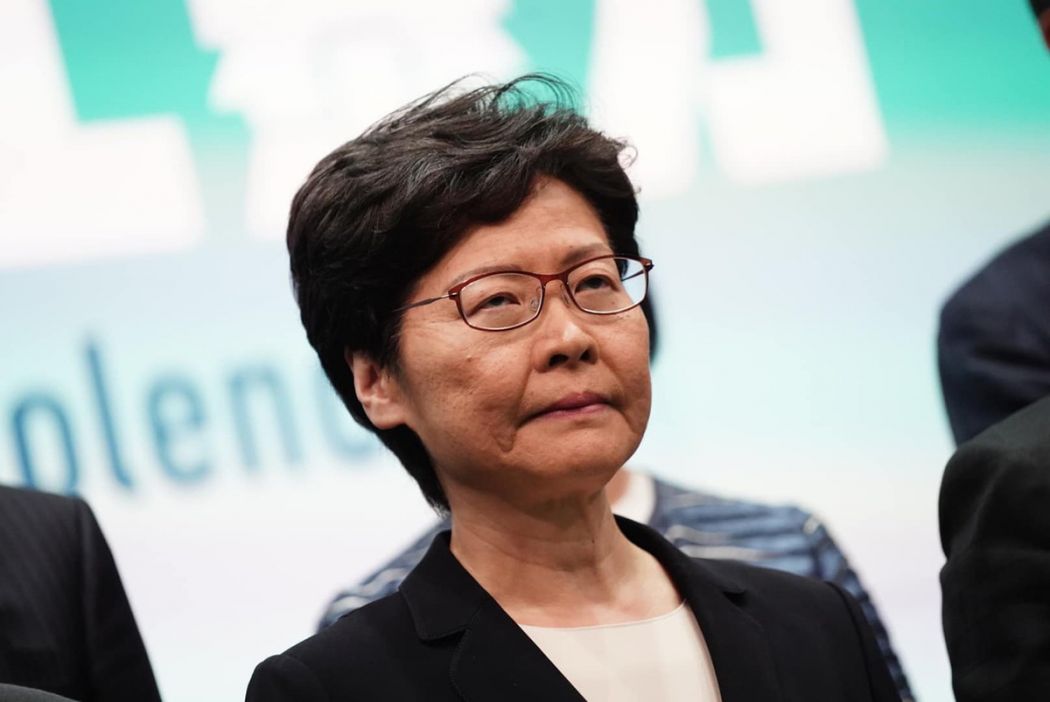A Hong Kong court has dismissed an application for an emergency injunction to halt the mask ban announced by Chief Executive Carrie Lam.
Lam on Friday invoked emergency legislation to ban people from wearing facial coverings at any lawful or unlawful protest. The law will come into effect at midnight, and offenders could be sentenced to a year in jail and a fine of HK$25,000.
Shortly after the announcement, activist Lester Shum and “Long Hair” Leung Kwok-hung filed an application to the court to ask for the ban to be halted, with a full hearing on the law’s constitutionality to be held later.

Convening at 9pm, High Court judge Godfrey Lam heard arguments from barrister Hectar Pun that the mask ban would constitute “disproportionate interference” with the right to peaceful assembly, the freedom of expression and the freedom of the person.
Government lawyer Benjamin Yu responded that the human rights concerns under the new regulation cannot trump the “public interest” needs of Hong Kong.
With only minutes left before midnight on Friday, Lam sided with the government and the ban was given a green light. The judge agreed with Yu that the city was facing a “dire situation” of escalating violence.

Lam said the question of whether the mask ban was “proportionate” in restricting human rights “merits further discussion,” but as of Friday night, the applicants failed to show a strong enough case to win a suspension of the law.
It was also revealed during the hearing that pro-democracy lawmaker Dennis Kwok has filed another application for an injunction, which would be heard on Saturday. Meanwhile, activist Leung is expected to file his legal challenge against the ban on Tuesday.
After his court defeat, Shum emerged from the High Court past midnight wearing a mask. “We have done all we can via legal means. If the government wants to use these methods against Hongkongers, let them try. We shall see if this draconian law can restore the so-called ‘peace and calm’ in society,” he said.

“Our reason to oppose the mask ban has nothing to do with violence, and we don’t want to resort to violence. Rather, Hongkongers are facing white terror – such as a person being doxxed, fired, or detained while travelling to the mainland once that person is photographed at a lawful rally,” Shum added.
“This regime took away our freedom from fear. They cannot blame us for putting up a reasonable opposition.”
‘Good reason’ for masks
At the hearing, Pun and Yu debated the significance of a person wearing a mask, with the activists’ lawyer arguing that there are good reasons for people to cover their faces.
“Homosexuals may not be wanted to be known as homosexuals when they participate at the IDAHOT parade,” he said, referring to a pride event. Pun also gave the example of civil servants protesting against the government, or Cathay Pacific airline employees who fear internal disciplinary measures.

“It will come as no news to your lordship that some of the employers in Hong Kong take very tough stances against employees demonstrating against them,” Pun added. “[Wearing facial covering] is understandable.”
Pun argued that the regulation would lead to disproportionate interference in human rights, especially as it “covers unlawful assembly and lawful assembly.”
Enforcing the law would also mean police can “use force” to remove a person’s facial covering. This “applies to any person in any public place, not only at a public procession or assembly,” he said.
However, Yu said that masks had a direct link to violence. “Those engaging in violence or vandalism have facial covering… not only would wearing of facial covering frustrate law enforcement, it also has an emboldening effect,” he said. “People who wear facial covering think that, by wearing the mask, they do not have to observe the law or even morals.”

“In many, many instances in the past months, where the public procession was the subject of a no-objection notice by the police… we still find that these processions and assemblies become violent,” Yu added.
Quoting extensively from the speech by the chief executive on Friday afternoon, Yu said there was great urgency for the ban to be enacted. “Violence in every district in Hong Kong, in virtually all urban districts – if that is not urgent, what are we talking about?” he said.
Pun concluded his case by saying that the mask ban would be “putting kerosene on a fire” – sparking a violent backlash. But Yu said he could not accept the argument, as it would lead to “anarchy.”
In the end, judge Lam sided with the government by saying that the law was necessary in light of the violence in Hong Kong. “For present purposes, it would be wrong to assume that the law would not be obeyed,” he said.

It would also be wrong for the court to halt the law just because some people may break it, he said.
Emergency law ‘not certain’
Pun also argued that the Emergency Regulations Ordinance, which allows the Chief Executive-in-Council to write laws unilaterally, was unconstitutional because it is not “prescribed by law” and lacks certainty.
Yu responded that Hong Kong is used to the practice of subsidiary legislation, which is first implemented by the government before being vetted by the legislature.
The argument is expected to be discussed at greater length in forthcoming legal challenges.
Hong Kong Free Press relies on direct reader support. Help safeguard independent journalism and press freedom as we invest more in freelancers, overtime, safety gear & insurance during this summer’s protests. 10 ways to support us.

